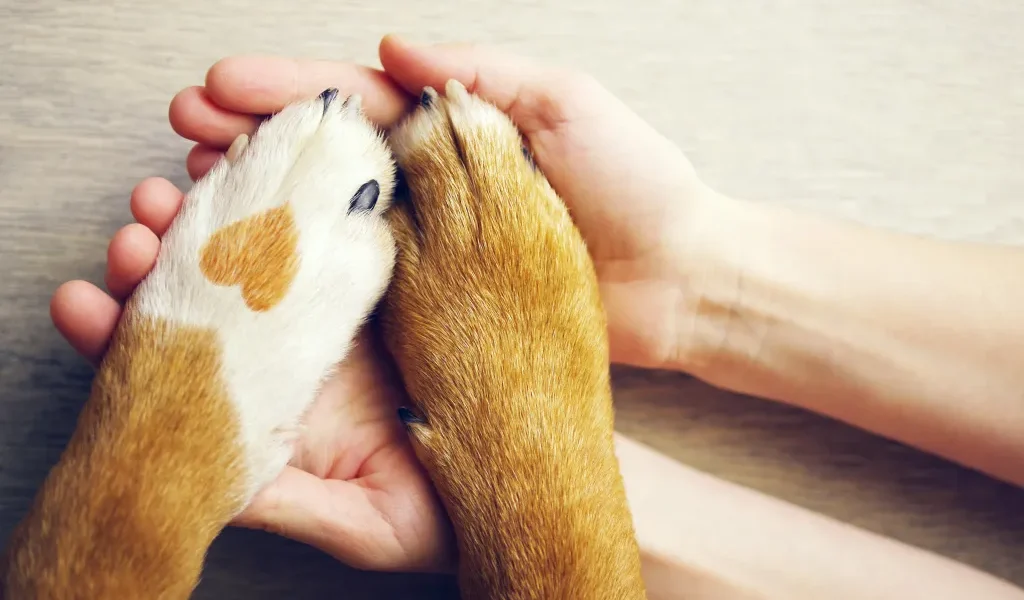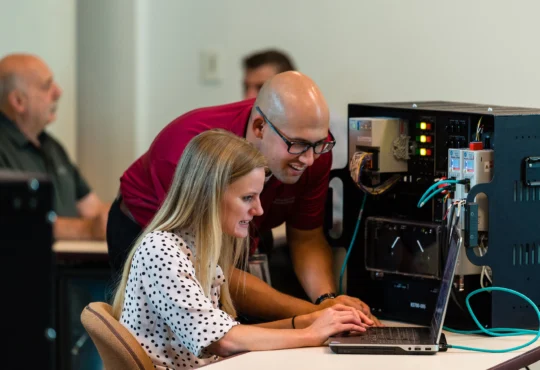
Pet Loss Counselor Training: Building Skills to Support Grieving Pet Owners with Compassion and Expertise
Exploring the role of a pet loss counselor opens a window into a deeply meaningful path where compassion meets professional skill. Many people experience the loss of a pet with the same intensity as losing any family member, and yet they often feel misunderstood or unsupported by those around them. This is where trained professionals step in, offering a safe space for emotional healing and guidance. Through pet loss counselor training, individuals learn to assist grieving owners as they process sadness, confusion, guilt, and the major lifestyle shifts that follow the loss of a beloved companion animal. The work requires more than kindness; it calls for psychological insight, emotional intelligence, and structured methodologies that support people through one of the most vulnerable stages of life. As interest grows in holistic and animal-focused mental health support, so does the need for specialized counselors capable of addressing this unique form of grief. For aspiring practitioners seeking a meaningful, heart-centered career, this field offers an avenue to make a profound difference.
Core principles behind pet loss counselor training help future counselors understand how the human–animal bond shapes emotional experiences. Training programs emphasize the psychological foundations of grief, highlighting how attachment styles, personal history, and relational dynamics contribute to the intensity of loss when a pet passes. These programs also explore the difference between anticipatory grief, sudden loss, and complicated grief, equipping learners to support diverse emotional responses. Students gain an understanding of how people may integrate their pets into daily routines, emotional regulation, and identity, which makes the loss particularly painful. Emotional intelligence becomes a central pillar in this training, encouraging counselors to recognize verbal and non-verbal cues in clients. Developing empathy helps professionals not only validate emotions but guide clients gently toward healing. With these elements combined, trainees gain a holistic understanding of how to approach pet bereavement with respect, sensitivity, and expertise.
Essential skills developed during the training enhance a counselor’s ability to communicate effectively and compassionately. Active listening is one of the first techniques learned, as the simple experience of being heard can bring relief to grieving individuals. Training also provides strategies for guiding clients through feelings of guilt or regret, which are common when pet owners reflect on medical decisions, end-of-life care, or euthanasia. Aspiring counselors are taught how to help clients process identity changes, such as adjusting to a quieter home or missing routines once shared with their pet. Cultural differences in grieving practices are explored to ensure counselors remain inclusive and respectful. Trainees also learn how to manage their own emotional boundaries, as supporting others through intense grief can be emotionally taxing. By sharpening these skills, individuals become prepared to support clients with professionalism and warmth.
Educational paths for pet loss counselor training vary, providing flexible options for different learning needs. Many programs offer online instruction, allowing aspiring counselors to study at their own pace while balancing other responsibilities. Some institutions provide hybrid models that blend digital lessons with live workshops for hands-on practice. Courses typically include modules on grief psychology, ethics, supportive communication, and practicum experiences where students observe or participate in real counseling scenarios. Certification options depend on the training provider, and while not always legally required, they significantly enhance credibility and trust with clients. Trainees should also expect to complete assessments, reflection papers, and supervised sessions to demonstrate their readiness to work with grieving pet owners. Choosing a reputable program ensures learners gain the comprehensive knowledge needed to be effective professionals in this emotionally sensitive field.
Understanding the human–animal bond becomes a crucial component of pet loss counselor training because it explains why the grief can feel overwhelming. Pets often become emotional anchors, providing comfort, stability, and companionship, and their presence integrates deeply into daily routines. When they pass, the emotional landscape shifts abruptly and dramatically. Training programs help aspiring counselors explore the psychological significance of this relationship and how different attachment styles influence the grieving process. People who depend on their pets for emotional support may experience intensified grief, and counselors must be equipped to navigate that depth with care. Programs also examine how bond strength varies across cultures and family structures, shaping the grief experience. With this knowledge, future counselors become adept at tailoring support to each client’s unique relationship and emotional needs.
Tools and approaches used by trained pet loss counselors provide structured ways to guide clients through the grieving process. Students learn how to facilitate guided reflection exercises that help individuals explore their emotions without judgment. Journaling prompts allow clients to express complex thoughts, while memorial planning provides meaningful ways to honor a pet’s life. Cognitive-behavioral techniques adapted for pet loss offer additional pathways for clients struggling with persistent negative thoughts. These methods support emotional healing by reframing guilt, easing anxiety, and fostering acceptance. Counselors also learn how to support clients who are facing euthanasia decisions, helping them navigate the emotional turbulence and ethical dilemmas involved. Through a combination of these tools, counselors can offer personalized support that acknowledges each client’s grief journey.
Building a supportive practice is essential for counselors who wish to serve clients effectively and sustainably. Training programs highlight the importance of maintaining strong personal boundaries to avoid emotional burnout, particularly when working with multiple clients experiencing heavy grief. Aspiring counselors can choose several practice paths, including private counseling, partnering with veterinary clinics, or collaborating with pet hospice services. Creating an atmosphere of emotional safety is emphasized, whether the practice is in-person or conducted online. Counselors also learn the value of community outreach, such as hosting support groups or participating in animal-welfare events. Continued education ensures practitioners remain updated on new therapeutic approaches and evolving best practices. With a supportive and well-structured practice setup, counselors can provide consistent, meaningful care.
Career opportunities in pet loss counseling expand across multiple sectors within the animal care and mental health industries. Veterinary clinics often seek grief support professionals to help pet owners navigate emotionally charged medical decisions. Animal shelters and rescue organizations may benefit from onsite or contracted counselors who assist adopters and families experiencing loss. An increasing number of professionals offer online grief support services, creating flexible working environments that reach clients globally. Many counselors lead workshops or group sessions to teach coping strategies and provide communal healing opportunities. Some organizations hire specialists for animal-assisted therapy programs, where supporting clients through pet loss becomes part of a broader mental health framework. This variety allows professionals to choose paths that match their skills, preferences, and desired work environments.
Ethics and professional standards form another crucial aspect of pet loss counselor training. Counselors must uphold strict confidentiality to create trust and emotional safety for clients. Ethical decision-making becomes essential when dealing with vulnerable individuals who may seek strong advice, emotional dependency, or ongoing contact. Training helps counselors understand the limits of their scope of practice and when referrals to mental health professionals are necessary. Additionally, cultural sensitivity ensures that counselors respect diverse grieving styles and family values. With the rise of digital counseling, programs also emphasize ethical online communication, data protection, and responsible remote care. These frameworks help counselors maintain professionalism while offering compassionate support.
Benefits of pet loss counselor training extend beyond career advancement and into personal growth. Many individuals find that the training helps them build emotional resilience and a deeper understanding of grief in their own lives. The ability to support others during delicate and emotional moments becomes a meaningful contribution to the community. Certified counselors often gain recognition and trust among veterinary professionals and animal lovers, leading to strong partnerships and rewarding experiences. Through this training, practitioners develop skills that benefit both clients and their own emotional well-being. The combination of empathy, structure, and psychological insight strengthens their ability to create impactful change in the lives of grieving pet owners.
FAQ
What qualifications do you need to begin pet loss counselor training?
Most programs do not require prior counseling experience, making the field accessible to compassionate individuals willing to learn.
How long does a typical training program take?
Programs vary but often range from several weeks to a few months depending on format and certification requirements.
Is certification required to practice professionally?
While not always mandatory, certification enhances credibility and helps clients feel confident in seeking your support.
Can trained counselors work remotely or part-time?
Yes, many counselors offer online sessions or flexible scheduling to accommodate remote or part-time work.
What challenges do new counselors often face?
Emotional fatigue and maintaining boundaries are common challenges but can be managed with proper training and supervision.
Are training programs suitable for those without counseling backgrounds?
Yes, many programs are designed for beginners and provide foundational knowledge from the ground up.
Takeaway
Pet loss counselor training prepares individuals to support grieving pet owners with empathy, psychological insight, and structured guidance. Through specialized skills and ethical practice, counselors can help clients navigate one of life’s most emotion









